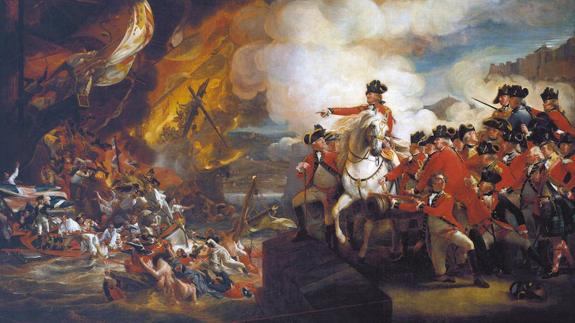On a momentous day in June 1779, the Spanish Crown made a decision that would fundamentally alter the course of the American Revolutionary War. On June 21, 1779, Spain declares war on Great Britain, creating a de facto alliance with the Americans, though the relationship proved far more complex than a simple partnership.
King Charles III of Spain found himself in an extraordinary diplomatic position. Whilst sympathetic to the American cause, he harboured deep reservations about formally recognising the rebel colonies. The prospect of one imperial power encouraging another’s colonial revolt was, as historians note, a treacherous precedent that could easily backfire on Spain’s own vast American territories.
The declaration emerged from Spain signed the Treaty of Aranjuez with France, agreeing to support the French in their war against Great Britain (as part of the American Revolutionary War) in return – assuming a victory – for several former Spanish territories then under British and French control. This strategic alliance with France provided Spain with the diplomatic cover needed to pursue its own territorial ambitions whilst supporting the American cause indirectly.
Spain’s entry into the conflict represented a calculated risk with enormous potential rewards. The Spanish had their sights set primarily on recovering Gibraltar, that strategically vital fortress at the mouth of the Mediterranean that Britain had held since 1704. Additionally, Spain sought to reclaim territories in the Caribbean and North America that had been lost in previous conflicts with Britain.
The timing proved crucial for the struggling American colonies. By 1779, the Continental Army had endured harsh winters and faced mounting challenges in sustaining their rebellion against the world’s most powerful navy. This step taken by Spain was viewed by most astute observers at the time as critical to the success of the American cause, as it opened up new fronts that would stretch British resources dangerously thin.
Spanish involvement manifested in several key ways. Most notably, Spanish forces attacked British positions in the south and captured West Florida from Britain in the siege of Pensacola. This secured the southern route for supplies and closed off the British position in the Gulf of Mexico, creating new logistical challenges for Britain’s military operations.
The leadership of figures like Bernardo de Gálvez, governor of Louisiana, proved instrumental in coordinating Spanish efforts. Prior to this declaration Bernardo de Galvez, the governor of Louisiana and Cuba, took measures against British smuggling, and before this declaration Galvez worked with American representatives to establish supply lines and coordinate military activities.
Spain’s declaration transformed a colonial rebellion into a truly global conflict. Britain now faced enemies on multiple continents, from the Caribbean to the Mediterranean, forcing a dispersion of naval and military resources that ultimately contributed to American success. The strategic implications would resonate far beyond the immediate conflict, reshaping the balance of power in both Europe and the Americas.
newshub finance



Recent Comments